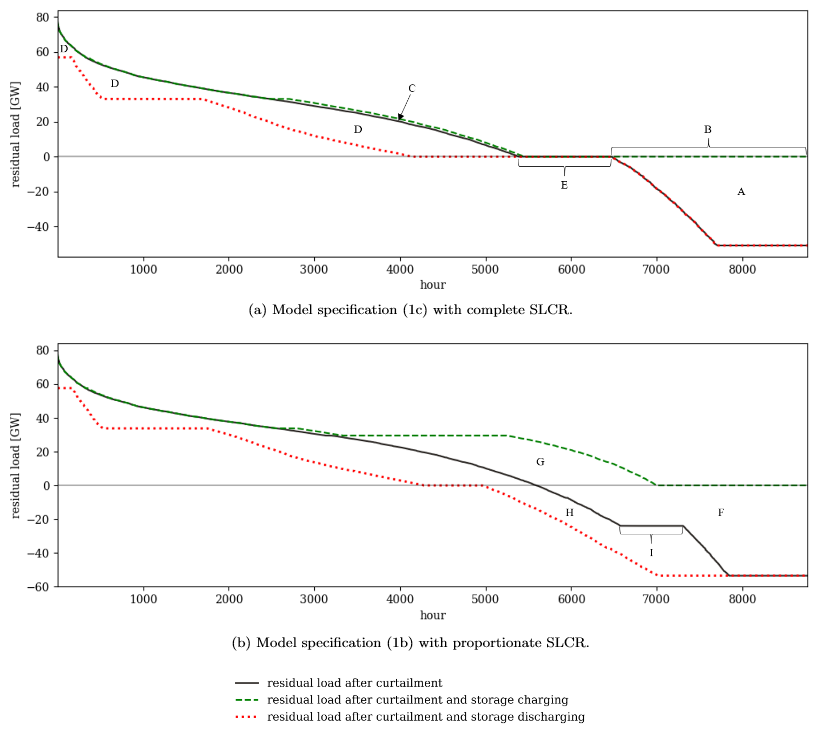
1/ Energy modelers, are you aware of unintended storage cycling? 🔋🤔This model artefact may occur when using binding renewable energy targets in your model. I and @WPSchill explore this in a new preprint: arxiv.org/abs/2107.13380 #energytwitter 

2/ The general mechanism: Instead of curtailing temporary renewable surplus energy, excess electricity is converted into unintended storage losses by simultaneous storage charging and discharging. The increase in VRE generation then falsely contributes to the renewable target. 

3/ The increase in renewable generation can be realized without additional renewable capacity installations, and seemingly helps achieving the renewable energy target at lower costs. Yet, it does not serve final demand, and requires additional generation from other technologies.
4/ You can detected this artifact, which may cause substantial distortions of optimal dispatch and investment decisions, in case of simultaneous storage charging and discharging of the same storage capacity. 

5/ This unintended storage use is caused by same-period cycling (SPC). There may be also cycling across periods (APC). 

6/ With our stylized #opensource power sector model #DIETER, we compare settings with different grades of Storage Loss Coverage by Renewables (SLCR) for scenarios in which the artifact occurs (zero and proportionate SLCR) against a setting without it (complete SLCR).
7/ The artifact decreases optimal renewable generation and storage energy capacity, while increasing the use of conventional generation and storage. 

8/ Consequently, unintended storage cycling also distorts residual load duration curves (which may be interesting for the nerdier part of the energy research audience). 

9/ We also investigate relevant drivers of this artifact. An important one is the targeted renewable energy share. Unintended storage use and losses (in red) substantially increase with the renewable energy share. 

10/ How to avoid unintended storage cycling? We propose to include all storage losses in the renewable energy constraint. This way, converting renewable surplus into storage losses cannot relax the renewable energy constraint (as in the „c“ specifications of the table). 

11/ We argue that unintended storage cycling is a specific case of a broader phenomenon of unintended energy losses that may arise also in various sector coupling technologies and multi-regional settings with transmission losses.
12/ In the Supplementary Information, we also provide a bit of math on optimality conditions in settings with binding renewable energy targets, complementary to earlier work by @nworbmot. 

13/ We carried out this work in the projects “Future of fossil fuels” and “MODEZEEN” and thank @BMBF_Bund and @BMWi_Bund for funding. Also thanks to participants of @EAERE_envecon, @IA4EE, @tudresden_de & @EUROSOLAR_D conferences for feedback!
The figure illustrating the mechanism of unintended storage cycling seems to be somewhat hard to read, so here is another version with proper background color. 

• • •
Missing some Tweet in this thread? You can try to
force a refresh



